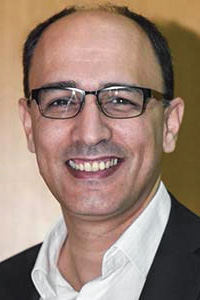

 The DNS Abuse Institute recently published our sixth monthly report for our project to measure DNS Abuse: DNSAI Compass ('Compass'). Compass is an initiative of the DNS Abuse Institute to measure the use of the DNS for phishing and malware. The intention is to establish a credible source of metrics for addressing DNS Abuse. We hope this will enable focused conversations, and identify opportunities for improvement.
The DNS Abuse Institute recently published our sixth monthly report for our project to measure DNS Abuse: DNSAI Compass ('Compass'). Compass is an initiative of the DNS Abuse Institute to measure the use of the DNS for phishing and malware. The intention is to establish a credible source of metrics for addressing DNS Abuse. We hope this will enable focused conversations, and identify opportunities for improvement.
 On 24-27 April, a 33-year-old international organisation of ICT organisations will convene a meeting at London under ETSI auspices after a four-year hiatus. Known today as the GSC or Global Standards Collaboration organisation, it began its existence in the Spring of 1990 at Fredericksburg, Virginia, as an umbrella mechanism for all of the world's ICT standards bodies to collaborate on "high interest subjects."
On 24-27 April, a 33-year-old international organisation of ICT organisations will convene a meeting at London under ETSI auspices after a four-year hiatus. Known today as the GSC or Global Standards Collaboration organisation, it began its existence in the Spring of 1990 at Fredericksburg, Virginia, as an umbrella mechanism for all of the world's ICT standards bodies to collaborate on "high interest subjects."
 Do you know someone who deserves recognition for helping build the Internet in their region or country? Or someone who made the Internet more secure through the work they've done? Or someone who made some major technical innovation that made the Internet faster or better?
Do you know someone who deserves recognition for helping build the Internet in their region or country? Or someone who made the Internet more secure through the work they've done? Or someone who made some major technical innovation that made the Internet faster or better?
 Wolfgang Kleinwaechters Internet Governance Outlook on CircleID each year sums up the drama of internet governance as it is played out on the global stage. We assume that all players on the internet governance stage work under the premise that despite all our differences, ultimately, we are united in our quest for "freedom from fear and want" based on the quality and dignity of all human beings, as expressed in the Universal Declaration of Human Rights (UDHR).
Wolfgang Kleinwaechters Internet Governance Outlook on CircleID each year sums up the drama of internet governance as it is played out on the global stage. We assume that all players on the internet governance stage work under the premise that despite all our differences, ultimately, we are united in our quest for "freedom from fear and want" based on the quality and dignity of all human beings, as expressed in the Universal Declaration of Human Rights (UDHR).
 One of the consequences of the war between Russia and Ukraine is that Russia has largely stopped participating in many large worldwide web applications. Russia has blocked Facebook and Twitter. Other applications like Apple, Microsoft, TikTok, Netflix, and others have withdrawn from Russia. The European Union is in the process of trying to block Russian-generated content, such as the state-owned news outlets of RT (formerly Russia Today) and Sputnik.
One of the consequences of the war between Russia and Ukraine is that Russia has largely stopped participating in many large worldwide web applications. Russia has blocked Facebook and Twitter. Other applications like Apple, Microsoft, TikTok, Netflix, and others have withdrawn from Russia. The European Union is in the process of trying to block Russian-generated content, such as the state-owned news outlets of RT (formerly Russia Today) and Sputnik.
 In 2022, the Internet world was shaken by big contradictions. On the one hand, efforts to constitute a stable and secure framework for a safe cyberspace made substantial progress. The UN got a new Tech Envoy. The UN-based Internet Governance Forum (IGF) got a "Leadership Panel." The UN negotiations on cybersecurity and cybercrime produced constructive interim results.
In 2022, the Internet world was shaken by big contradictions. On the one hand, efforts to constitute a stable and secure framework for a safe cyberspace made substantial progress. The UN got a new Tech Envoy. The UN-based Internet Governance Forum (IGF) got a "Leadership Panel." The UN negotiations on cybersecurity and cybercrime produced constructive interim results.
 The recent adoption at the end of December of the new EU Directive for a high level of cybersecurity across the Union -- commonly referred to as "NIS2" - paved the way for important updates to the domain name system (DNS). Most significantly, Article 28 of NIS2 and its related recitals resolved any ambiguities about the public interest served by a robust and objectively accurate WHOIS system that permits legitimate access by third parties to data...
The recent adoption at the end of December of the new EU Directive for a high level of cybersecurity across the Union -- commonly referred to as "NIS2" - paved the way for important updates to the domain name system (DNS). Most significantly, Article 28 of NIS2 and its related recitals resolved any ambiguities about the public interest served by a robust and objectively accurate WHOIS system that permits legitimate access by third parties to data...
 At the beginning of 2023, the good news is that, in spite of all geopolitical tensions, the Internet infrastructure built around TCP/IP continues to carry emails, web pages, videos, and podcasts across the globe. Technically, the Internet remains robust. The bad news is that more and more digital borders will continue to affect the global nature of international digital communication...
At the beginning of 2023, the good news is that, in spite of all geopolitical tensions, the Internet infrastructure built around TCP/IP continues to carry emails, web pages, videos, and podcasts across the globe. Technically, the Internet remains robust. The bad news is that more and more digital borders will continue to affect the global nature of international digital communication...
 Internet Governance is a complex and constantly evolving field that touches upon many aspects of the global digital landscape. It encompasses everything from technical standards and protocols, to policy and regulatory issues, to the social, economic, and cultural impacts of the internet. With such a wide range of stakeholders and interests at play, it's no wonder that the community of Internet Governance professionals is so diverse.
Internet Governance is a complex and constantly evolving field that touches upon many aspects of the global digital landscape. It encompasses everything from technical standards and protocols, to policy and regulatory issues, to the social, economic, and cultural impacts of the internet. With such a wide range of stakeholders and interests at play, it's no wonder that the community of Internet Governance professionals is so diverse.
 On the 21st of December, ICANN announced that Goran Marby had stepped down as ICANN's sixth CEO. As the ICANN Board commences its search for its next CEO, I thought it would be useful to look back at ICANN's selection process for its previous CEOs and how each tended to be driven by the unique challenges confronting ICANN at that time.
On the 21st of December, ICANN announced that Goran Marby had stepped down as ICANN's sixth CEO. As the ICANN Board commences its search for its next CEO, I thought it would be useful to look back at ICANN's selection process for its previous CEOs and how each tended to be driven by the unique challenges confronting ICANN at that time.